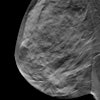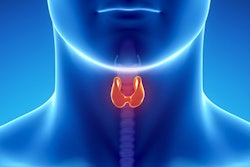
Expanded Medicaid coverage was linked to earlier breast cancer diagnosis in a study published on July 1 in JAMA Surgery. Advanced breast cancer diagnoses fell by 3% in states that expanded Medicaid after the passage of the Patient Protection and Affordable Care Act (ACA).
The study used deidentified data from 71,235 women in 31 states that expanded Medicaid and 14 states that kept more restrictive Medicaid coverage. Lead study author Dr. Justin LeBlanc attributed the decline of advanced diagnoses in expansion states to improved healthcare access for women.
"It's important to get women healthcare access early," stated LeBlanc, a surgical resident at the Yale Cancer Center and Smilow Cancer Hospital, in a press release. "When patients have access to healthcare, they're more likely to utilize it."
Beginning in 2014, the ACA allowed states to broaden Medicaid coverage to include adults with a household income at or below 138% of the federal poverty level, or $35,535 for a family of four in 2020. Previously, Medicaid eligibility was capped at a household income of 40% of the federal poverty level, or $10,480 for a family of four.
In states that expanded Medicaid, the percentage of uninsured or Medicaid-insured breast cancer patients who received a late-stage diagnosis fell from 22% before expansion to 19% after expansion. In nonexpansion states, that percentage fell by less than a percentage point.
Expansion states also increased early-stage breast cancer diagnoses among uninsured or Medicaid-insured populations from 78% before expansion to 81% after expansion. After running a few models, the authors found expanding Medicaid most likely lowered the number of stage 3 diagnoses and increased the number of stage 2 diagnoses.
"It seems likely that increased access to healthcare may allow patients with palpable stage 2 disease to be diagnosed before it becomes stage 3," they wrote.
| Uninsured and Medicaid-insured patients with stage 3 or 4 breast cancer diagnosis | ||||||
| Nonexpansion states | Expansion states | |||||
| 2012-2014 | 2015-2016 | Percent change | 2012-2014 | 2015-2016 | Percent change | |
| All patients | 24.3% | 23.5% | -0.8% | 21.8% | 19.3% | -2.5% |
| Black patients | 27.4% | 27.5% | +0.1% | 24.6% | 21.6% | -3% |
| Patients under 50 | 25.7% | 26.1% | +0.4% | 22.9% | 20.7% | -2.2% |
Expansion states also saw late-stage diagnoses decrease for Black women, a population typically burdened with more advanced disease at diagnosis. Breast cancer patients younger than 50 were also far less likely to have a late-stage diagnosis in expansion states than nonexpansion states.
While the results show the benefits of expanded Medicaid coverage, uninsured and Medicaid-insured patients were still about twice as likely to receive a late-stage diagnosis as women with private insurance. The percentage of patients with private insurance who received a late-stage diagnosis also rose by almost 3% in nonexpansion states, an intriguing finding that the authors had no explanation for and didn't further investigate.
LeBlanc and colleagues noted the findings are both encouraging and discouraging, as Medicaid expansion reduced race-related disparities but didn't overcome the late-stage diagnosis gap between women with public and private insurance.
The Yale Cancer Center researchers plan to continue comparing medical service use for breast cancer patients with Medicaid and other insurance types, such as studying the role insurance plays in the use of chemotherapy, radiation therapy, reconstructive surgery, and genetic testing.
"Most women with breast cancer live quite a long time if it's caught early and treated correctly," LeBlanc stated. "The next step is that we should also try to give them a good quality of life."



















